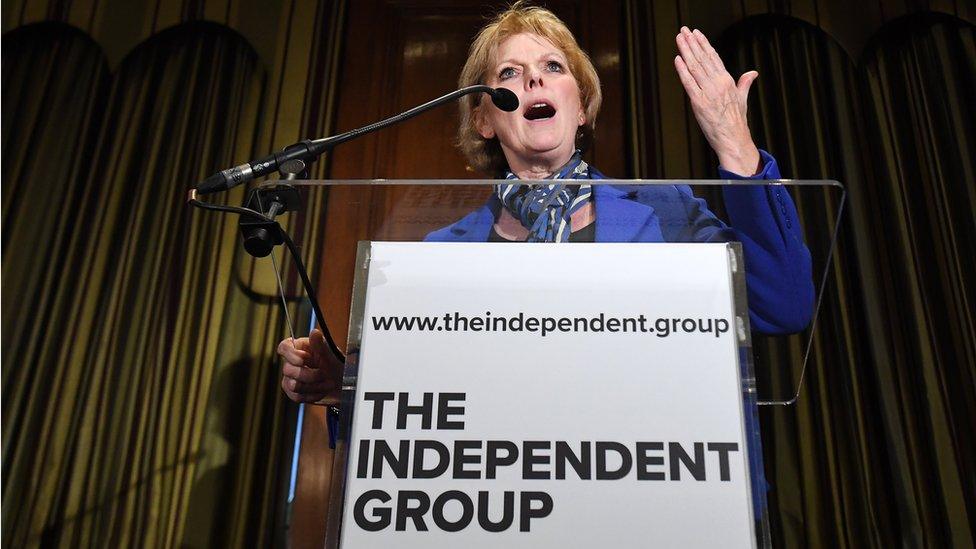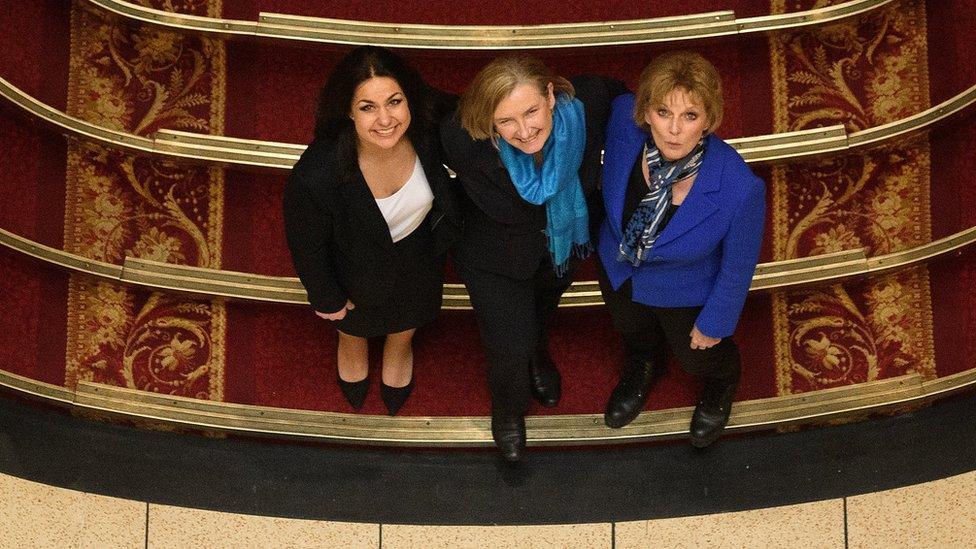Could new group reshape political tribes?
- Published

Anna Soubry resigned from the Conservatives on Wednesday to join The Independent Group
Only a notion three days ago, The Independent Group now has more members than the DUP and the same number as the Lib Dems.
The Tory trio's defection matters for three big reasons, way beyond the enormous personal decision taken by each individual.
First, when a government has no majority on its own, even shy of a dozen MPs can wield political strength.
The defections change not just the official arithmetic in Parliament, but its alchemy and atmosphere.
While none of those who have made the jump are likely to back the prime minister's Brexit deal, they are a new block for the government, and the Labour front bench, to contend with - ultimately, whose votes are up for grabs, and whose numbers are likely to swell in the coming days.
Splinter, not split
Second, today's departures are evidence of how serious Conservative divisions have become.
Right now, as with Labour, it's a splinter, not a split. But don't underestimate how hard a decision it is for any MP to abandon their tribe.
These departures illustrate, therefore, a real problem for the governing party.
For a very long time, before the referendum even, a clash was apparent in the Conservative Party with those who wanted to accelerate, make real and more relevant David Cameron's so-called modernisation project.
In other words, it was an effort to respond to the hopes and desires of floating voters in the middle, rather than the traditional Tory base, and to be more of a mirror of the country and how it was changing.

Heidi Allen, Sarah Wollaston and Anna Soubry now all sit as independent MPs
This was not just the well-heeled Notting Hill set musing about how best to hold onto power, but a very real question over how the party ought to evolve - what, and who, was it for?
Those questions have, of course, been drowned out by the clamour over Brexit.
The split in the Tory party over Europe is not a perfect reflection of that division, but it is certainly one of its contours.
Fears over Brexit and the party drifting to the right - and away from relevance - are held far beyond today's "three amigos", but by dozens of MPs privately, including ministers in the government.
If, as is likely, more MPs move across, those private pleas to stay in the centre ground have more weight.
Like Labour, the Tories have big questions they can't answer at the moment - profound quandaries that it's not clear their leaderships are ready, or perhaps even capable right now of meeting.
Huge hurdles
Lastly, today's departures mean there is now a group in Parliament who hope to escape the traditional party lines.
Of course, there are huge hurdles to that. We know what they all don't like - but we're not sure yet what they all do.
It's not remotely clear that the group will actually become a political party.
We can't know yet if they will ever be able to agree common cause to produce a whole manifesto, far less that they would become a big enough force to put forward multiple candidates in the hope of actually winning elections.
But Brexit, which criss-crosses party lines in Parliament, has already shaken the stability of our two main Westminster parties, and it's always had the potential to reshape our political tribes.
This group's potential is easy to dismiss, but unwise for the established parties to ignore.